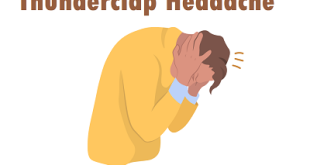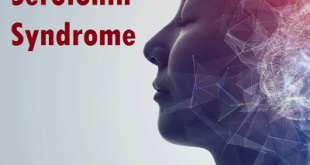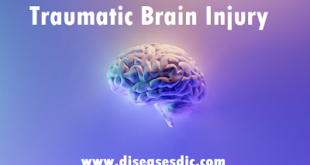Definition
Encephalitis (en-sef-uh-LIE-tis) is inflammation of the brain. There are several causes, but the most common is viral infection. Encephalitis often causes only mild flu-like signs and symptoms such as a fever or headache or no symptoms at all. Sometimes the flu-like symptoms are more severe. It can also cause confused thinking, seizures, or problems with senses or movement. Rarely, it can be life-threatening. Timely diagnosis and treatment are important because it’s difficult to predict how encephalitis will affect each individual.
Encephalitis
Epidemiology
The number of new cases a year of acute encephalitis in Western countries is 7.4 cases per 100,000 population per year. In tropical countries, the incidence is 6.34 per 100,000 per year. In 2015, encephalitis was estimated to have affected 4.3 million people and resulted in 150,000 deaths worldwide. Herpes simplex encephalitis has an incidence of 2–4 per million population per year.
Risk factors of encephalitis
Anyone can develop encephalitis. Factors that may increase the risk include:
Age: Some types of encephalitis are more common or more severe in certain age groups. In general, young children and older adults are at greater risk of most types of viral encephalitis.
Weakened immune system: People who have HIV/AIDS, take immune-suppressing drugs or have another condition causing a weakened immune system are at increased risk of encephalitis.
Geographical regions: Mosquito- or tick-borne viruses are common in particular geographical regions.
Season of the year: Mosquito- and tick-borne diseases tend to be more common in summer in many areas of the United States.
Types and Causes
The exact cause is often unknown. But when a cause is known, the most common is a viral infection. Bacterial infections and noninfectious inflammatory conditions also can cause encephalitis.
There are two main types of encephalitis:
Primary encephalitis: This condition occurs when a virus or other agent directly infects the brain. The infection may be concentrated in one area or widespread. A primary infection may be a reactivation of a virus that had been inactive after a previous illness.
Secondary encephalitis: This condition results from a faulty immune system reaction to an infection elsewhere in the body. Instead of attacking only the cells causing the infection, the immune system also mistakenly attacks healthy cells in the brain. Also known as post-infection encephalitis, secondary encephalitis often occurs two to three weeks after the initial infection.
Common viral causes
The viruses that can cause encephalitis include:
Herpes simplex virus (HSV): Both HSV type 1 associated with cold sores and fever blisters around your mouth and HSV type 2 associated with genital herpes can cause encephalitis. Encephalitis caused by HSV type 1 is rare but can result in significant brain damage or death.
Other herpes viruses: These include the Epstein-Barr virus, which commonly causes infectious mononucleosis, and the varicella-zoster virus, which commonly causes chickenpox and shingles.
Enteroviruses: These viruses include the poliovirus and the coxsackievirus, which usually cause an illness with flu-like symptoms, eye inflammation and abdominal pain.
Mosquito-borne viruses: These viruses can cause infections such as West Nile, La Crosse, St. Louis, western equine and eastern equine encephalitis. Symptoms of an infection might appear within a few days to a couple of weeks after exposure to a mosquito-borne virus.
Tick-borne viruses: The Powassan virus is carried by ticks and causes encephalitis in the Midwestern United States. Symptoms usually appear about a week after a bite from an infected tick.
Rabies virus: Infection with the rabies virus, which is usually transmitted by a bite from an infected animal, causes a rapid progression to encephalitis once symptoms begin. Rabies is a rare cause of encephalitis in the United States.
Childhood infections: Common childhood infections such as measles (rubeola), mumps and German measles (rubella) used to be fairly common causes of secondary encephalitis. These causes are now rare in the United States due to the availability of vaccinations for these diseases.
Symptoms of encephalitis
The patient typically has a fever, headache, and photophobia (excessive sensitivity to light). There may also be general weakness and seizures.
Less common symptoms
The individual may also experience nuchal rigidity (neck stiffness), which can lead to a misdiagnosis of meningitis. There may be stiffness of the limbs, slow movements, and clumsiness. The patient may also be drowsy and have a cough.
More serious cases
In more serious cases, the person may experience very severe headaches, nausea, vomiting, confusion, disorientation, memory loss, speech problems, hearing problems, hallucinations, as well as seizures and possibly coma. In some cases, the patient can become aggressive.
Signs and symptoms in infants
Initially, encephalitis is harder to detect in young children and babies. Parents or guardians should look out for vomiting, a bulging fontanel (the soft area on the top center of the head), incessant crying that does not get better when the baby is picked up and comforted, and body stiffness.
Bulging fontanel
Diagnosis and test
Your doctor will first ask you about your symptoms. They may perform the following tests if encephalitis is suspected.
Spinal tap or lumbar puncture
In this procedure, your doctor will insert a needle into your lower back to collect a sample of spinal fluid. They will test the sample for signs of infection.
Brain imaging with CT scan or MRI
CT scans and MRI detect changes in brain structure. They can rule out other possible explanations for symptoms, such as a tumor or stroke. Certain viruses have a tendency to affect certain areas of the brain. Seeing what parts of your brain are affected can help determine what type of virus you have.
CT image of encephalitis
Electroencephalograph (EEG)
An EEG uses electrodes (small metal discs with wires) attached to the scalp to record brain activity. An EEG does not detect the virus that causes encephalitis, but certain patterns on the EEG may alert your neurologist to an infectious source of your symptoms. Encephalitis can lead to seizures and coma in later stages. That’s why the EEG is important in determining the areas of the brain that are affected and the types of brain waves that occur in each area.
Blood tests
A blood test can reveal signs of a viral infection. Blood tests are rarely performed alone. They usually help diagnose this disease along with other tests.
Brain biopsy
In a brain biopsy, your doctor will remove small samples of brain tissue to test for infection. This procedure is rarely performed because there’s a high risk of complications. It’s usually only done if doctors can’t determine the cause the brain swelling or if treatment isn’t working.
Treatment and medications
Treatment for mild encephalitis usually consists of:
- Bed rest
- Plenty of fluids
- Anti-inflammatory drugs such as acetaminophen (Tylenol, others), ibuprofen (Advil, Motrin IB, others) and naproxen sodium (Aleve) to relieve headaches and fever
Antiviral drugs
Encephalitis caused by certain viruses usually requires antiviral treatment.
Antiviral medications commonly used to treat encephalitis include:
- Acyclovir (Zovirax)
- Ganciclovir (Cytovene)
- Foscarnet (Foscavir)
Some viruses, such as insect-borne viruses, don’t respond to these treatments. But because the specific virus may not be identified immediately or at all, doctors often recommend immediate treatment with acyclovir. Acyclovir can be effective against HSV, which can result in significant complications when not treated promptly.
Antiviral medications are generally well-tolerated. Rarely, side effects can include kidney damage.
Supportive care
People who are hospitalized with severe encephalitis might need:
- Breathing assistance, as well as careful monitoring of breathing and heart function
- Intravenous fluids to ensure proper hydration and levels of essential minerals
- Anti-inflammatory drugs, such as corticosteroids, to reduce swelling and pressure within the skull
- Anticonvulsant medications, such as phenytoin (Dilantin), to stop or prevent seizures
Follow-up therapy
If you experience complications of encephalitis, you might need additional therapy, such as:
- Physical therapy to improve strength, flexibility, balance, motor coordination and mobility
- Occupational therapy to develop everyday skills and to use adaptive products that help with everyday activities
- Speech therapy to relearn muscle control and coordination to produce speech
- Psychotherapy to learn coping strategies and new behavioural skills to improve mood disorders or address personality changes
Prevention of encephalitis
Children and adults should avoid contact with anyone who has encephalitis.
Controlling mosquitoes (a mosquito bite can transmit some viruses) may reduce the chance of some infections that can lead to this disease.
- Apply an insect repellant containing the chemical, DEET when you go outside (but DO NOT use DEET products on infants younger than 2 months).
- Remove any sources of standing water (such as old tires, cans, gutters, and wading pools).
- Wear long-sleeved shirts and pants when outside, especially at dusk.
Children and adults should get routine vaccinations for viruses that can cause encephalitis. People should receive specific vaccines if they are traveling to places such as parts of Asia, where Japanese encephalitis is found. Vaccinate animals to prevent encephalitis caused by the rabies virus.
 Diseases Treatments Dictionary This is complete solution to read all diseases treatments Which covers Prevention, Causes, Symptoms, Medical Terms, Drugs, Prescription, Natural Remedies with cures and Treatments. Most of the common diseases were listed in names, split with categories.
Diseases Treatments Dictionary This is complete solution to read all diseases treatments Which covers Prevention, Causes, Symptoms, Medical Terms, Drugs, Prescription, Natural Remedies with cures and Treatments. Most of the common diseases were listed in names, split with categories.








well i came to know a new illness related to siezure disorder .want to know further about encephalitis related siezures
when they occur. does patient release saliva during siezure and how long does episode lasts .and other cruicial thing . what is the duration of siezures after one happened before other one to come .
yes during seizure saliva will release. Usually seizures do not last more than 60 to 90 seconds. if the seizure lasts longer than 5 minutes (no matter how long the seizure lasts), call or other emergency services immediately.
this helps me very much during my studies
iam very thankful of it
plz provides some list of desease which are genuine in India
Ok, we will update shortly. Stay tuned. Thank you.
thanks but how about one side headache
If you have headache with other symptoms such as seizures, photophobia and weakness, then it will be encephalitis. If its just one sided head ache, it may be normal ache due to stress and tiredness. but once consult better to consult doctor to get rid of pain.
hi can you please help me I’m also suffering from encephalitis,because sometimes I lost my memory and I speak something without making sense. where can I get help.
Consult doctor to get treatment for encephalitis.
Good morning. My symptoms.. Stiffness of the neck, eye goes red and blur, memory lose, drowsiness tire and feeling sleepy… Could this be Encephalitis?
Consult with a doctor to diagnose the problem that you are suffering from.
pls my daughter of 5years old suffers a cerebral malaria since January 2017 till now and her vision as not clear,pls somebody should help me here with what I can do to help her. thanks
Consult with a doctor.
hi thanks a lot about encephalitis.i got similar issue.the specialist I was taken to couldn’t help.i went for a CT scan n was giving several drugs but to no avail.
symptoms:stiff neck,very sensitive to sunlight,head ache fever,sometimes I had blur vision n was almost going mard(from what I was told)cause I had memory lost.was diagnosed of Adam syndrome,but later it showed the neurophsychatrics had no idea what my problem was.pls help me out with what u think is wrong([email protected])
Try to change the physician now you are going. Take proper treatment.
Please consult a doctor.
I’ve got hep A got hullsation bad one headache pressure head ears popping and behind my eyes. I had flulike symptom for 5 months. I had pain I did go to physical therapy it work good. my right limp has pain. sunlight and floral bulbs bother my eyes. the doctor don’t know what’s wrong with me I have 1 and 2 and hvp. I got a vac for hep b to bring my Imus symptom up. it work. fevers flushing though my body cramp movement.
Please consult a doctor for further help.
I have been living with this condition since 2002, my life has changed I forget like it’s running out of fashion, with terrible headaches and seizes ever six month or when I get to happy. The right side at the bottom or end of my brain is dead because of this condition or illness. People don’t understand, now I just want to lock myself inside the house because am sick and tired of introducing to the some people. What can you suggest for the memory so that I can study further. I work and no one understands my problem of my memory. This is also stressing me out.
Please consult a doctor as soon as possible.
My health is like living in hell, with seizes, headaches and forgetfulness due to brain damage. Can a brain that has been damage by this condition be restored or fixed. My memory is bad because of this condition.
Regular practice of meditation can reduce the memory problems. Also please consult a doctor to reduce the future effects.